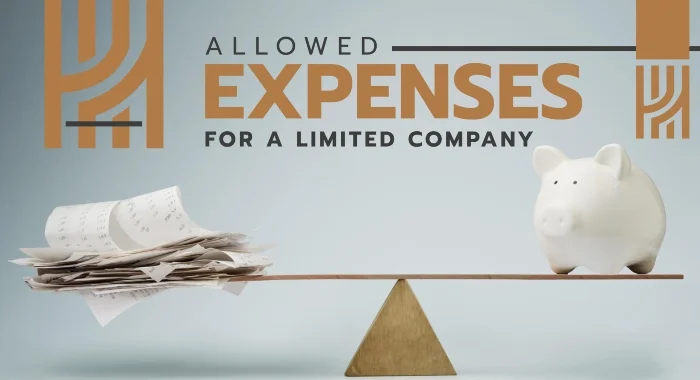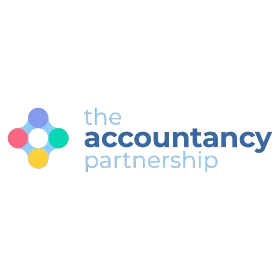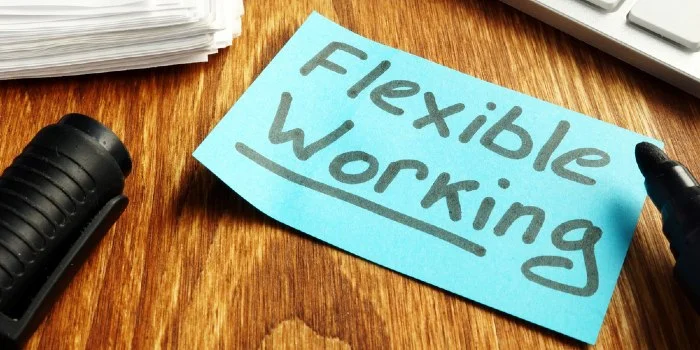Correctly working out your tax can be complicated.
The biggest problem for limited companies is that they miss out on expenses that can be claimed back, paying more than they should in taxes every single year.
Even if you’re a seasoned veteran or a newcomer, knowing what you can and can’t claim for is a tough one to navigate. Don’t worry, this guide will go through the allowable expenses for a limited company and how you can claim them.
What are allowable expenses for a limited company?
Allowable business expenses reduce the amount of profit on which limited companies pay Corporation Tax. The more expenses you claim, the less tax you pay. That means better profit for you. Every business is different, so there’s no exclusive list of allowable expenses for a limited company.
However, the general rule is that expenses can be claimed back if they are “wholly, exclusively, and necessary” for business purposes.
Although I’m sure you work better in a luxury villa on a beautiful sun-kissed beach, you can’t claim that one back. There are limits to what you can claim as a limited company – but in most cases, there are properly a few allowable expenses for a limited company that you’re missing out on.
Don’t worry, we’re going to detail them all below.
What are the rules for claiming limited company expenses?
As we mentioned before, the golden rule is that a business expense needs to be “wholly, exclusively, and necessary” for business purposes.
But as well as that, it’s worth mentioning a few other little caveats.
First, you can’t claim for expenses that are for both dual business and personal use. So, for example, you can’t get a new phone that you will use for both personal and business. However, you can expense the business use from it (such as call rates).
This will be a lot easier to do if you can draw a clear line between business and personal. For example, Mike is going away for a business trip. He’s attending a conference in Edinburgh, so he will be allowed to expense his travel costs up there. However, after the conference he stays an extra two days to enjoy the scenery as he’s never been there before.
Now, there’s nothing wrong with Mike having a little holiday. However, Mike will only be allowed to expense the travel for the first part of his trip. Anything past the conference is personal, so he cannot expense it.
Secondly, if expenses aren’t paid directly through your businesses bank account, then you will need to reclaim the expense through your company for reimbursement. You can’t get directly paid into your personal account.
You will also need to make sure that you keep records of any receipts, particularly if any of them are queried at a later date.
Lost the buzz for your business?
Starting a business is exciting. Succeeding is rewarding. The bit between is hard, repetitive, and full of self-doubt.
The Lonely Middle Club (From Business4Beginners) helps you through it:
Get support and advice from other small business owners
Remove the self-doubt that’s holding your business back
Learn techniques and strategies to grow your business faster
Be inspired with our exclusive ‘swipe’ file and AI-powered tools
No pressure – work at YOUR pace, towards YOUR goals
—
23 Allowable expenses for a limited company
Ready to dive into the allowable expenses for a limited company you will be able to claim? Let’s go through them below.
1. Travel costs
If you need to travel for work, there are a number of allowable expenses for a limited company that you can claim back here.
For example, you will be able to claim back petrol used to drive, train tickets or even taxi use. However, be careful about taxi use. HMRC take a dim view of excessive use of taxis if they appear unnecessary. So this means booking a taxi to take a 2-minute trip down the road if it was easily walkable.
When away, you’ll also be able to claim accommodation if you have to travel far. You can also claim back lunch costs if you exceed five working hours in your day. If you’re working up to ten hours, you can also claim dinner.
You’ll be able to claim decent meals back from this, but if you’re eying up an expensive Michelin star restaurant or lavish cocktails all day long, you’re fresh out of luck. Feeding yourself is necessary. Spoiling yourself is a personal treat (and thus not expenseable).
2. Everyday milage
If part of your job is to drive from client to client, or if you have to travel to a temporary place of work, you can claim back the milage as an allowable expense for a limited company.
This is the rates you can claim back, based on which type of vehicle that you use:
| Vehicle | Rate Per Mile (On first 10,000 in tax year) | Rate Per Mile (On each mile over 10,000) |
| Cars and vans | 45p | 25p |
| Motorbikes | 24p | 24p |
| Bicycle | 20p | 20p |
However, you can’t claim back mileage if you’re travelling into a regular workplace. So if you’re just driving into the office every day, you can’t claim here.
3. Accommodation expenses
As well as claiming the travel costs on a business trip, you can also expense the accommodation if the trip requires you to stay overnight.
Again, there will be limits to the type of accommodation booked and what constitutes as needing an overnight stay. If you’re travelling less than an hour for a one-day event, it’s probably unlikely that you’ll need accommodation. It’s a multi-day event that’s hours away, then this will be a lot more reasonable. But maybe stick to a travellodge, rather than a spa resort?
4. Accountancy fees
You can claim back the full cost of your accountancy fees as a limited company, provided that the accountant only worked on your businesses’ accounts.
If you brought them in to also prepare your personal self-assessment tax, then you need to record it as a ‘benefit in kind’ (BIK).
EXCLUSIVE OFFERS – Save On Your Accountancy Costs
5. Bank or other financial charges
You can claim expenses on charges your bank or credit card may charge you, as long as the accounts or cards are in the name of your business. You can’t claim any charges that are associated with your personal accounts.
That means you can claim back on:
- Bank, overdraft, and credit card charges;
- Interest on business and bank loans (but not the loan amount!);
- Hire purchase interest;
- Leasing payments;
- Alternative finance payments such as Islamic finance.
You can’t claim back on any loans, arranged overdrafts or finance arrangements through. This is for additional charges you might face, not for sources of income.
6. Business insurance policies

If you take out any insurance policies, such as professional indemnity insurance or public liability insurance, you can claim back on this as an expense.
Not sure what insurance you might need as a business? You can read our guide to business insurance here.
7. Charitable donations
If you make a donation to a registered charity, you can claim tax relief on these payments by deducting the value of your donations from your total business profits.
Charitable donations don’t have to be money based either and can also include things like:
- Equipment or trading stock;
- Land, property, or shares in another company;
- Employees (on secondment);
- Eponsorship payments.
8. Childcare costs and expenses
Balancing being a parent and running a business is never easy. Thankfully, there are some expenses that you can claim to ease this responsibility.
Before you get too excited, the HMRC doesn’t allow childcare as a legitimate business expense. But you can claim personal tax relief through salary payments each month on one of the following schemes:
- Tax-Free Childcare scheme, which can give up to £500 every three months towards childcare.
- Childcare voucher scheme, which sadly is no longer open to new entrants, but will continue providing vouchers to parents to qualified before 2018.
9. Christmas parties or staff events
You can host an annual event as a tax-free benefit every year, provided that you meet certain conditions. For most businesses, this means the Christmas party.
To claim this back, you:
- Mustn’t exceed an expenditure of £150 a head;
- Must be mostly for employees. Partners are allowed, but the event must be catered for your staff, not guests.
Although most companies use this as an annual event, the £150 a head is an annual limit. That means that you could host several, smaller events throughout the year instead if that’s what you prefer.
If you go over the £150 limit, you won’t be able to claim on these expenses again until the next year. I guess it turns out you can put a price on fun.
10. Equipment expenses
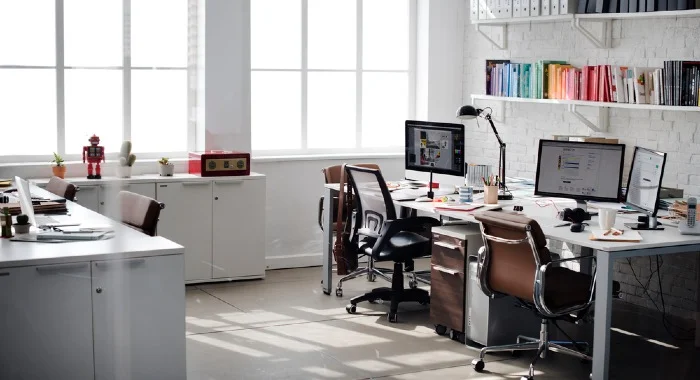
You’ll be able to claim tax relief on any necessary and essential equipment for your business.
This could be equipment such as computers, printers, or software. If you need specified equipment for your business, such as gardening tools for a landscaping business, this also counts as an allowable expense.
You can also claim towards the cost of furnishing an office within reason. This includes things like chairs, desks, and tables – but won’t cover expensive luxuries such as TV’s, gym gear, or an Xbox.
11. Eye tests and glasses
You can claim for vision tests as an allowable expense, providing “it’s necessary for the initial or continued use of visual display equipment in your duties”. Although it might seem that vision is important for every field of work, this mostly refers to industries where people are working with computers or screens.
You can only claim for glasses or contact lenses if they’re prescribed specifically for ‘monitor or screen work’. I suppose it’s a small relief for the amount of stress that staring at a screen all day is causing our eyes.
12. Setting up fees
If your limited company is new, you can claim back fees and costs that it took to set up your limited company. This includes company formation costs, providing the initial equipment, and accountancy fees.
13. Fixed assets
As long as they’re entirely for business use, items such as laptops, PCs, business phones, and furniture can be recorded as a business fixed asset.
Just make sure you keep HMRC informed of all your assets, even if you sell or scrap ones that are no longer needed. The HMRC will need to know in order to ensure it’s correctly accounted for each year.
14. General office costs
You can claim minor purchases that keep your office running as allowable expenses. This includes things like postage costs, printer paper, and ink, or office stationery.
15. Household costs and utility bills
If you use your home as an office, you could claim a percentage of your household costs and utility bills as business expenses.
For this one, you can claim a set rate of £6 per week, or instead calculate what rooms are used for businesses (easy if it’s just one office!) and the percentage of time they are used for work purposes. For example, if you work from a dining room, you need to work out how much time that room is used for business, and how much is personal.
16. Staff gifts

You don’t have to pay tax on a gift or benefit for your employee if:
- it cost you £50 or less to provide;
- it isn’t cash or a cash voucher;
- it isn’t a reward for their work or performance;
- it isn’t in the terms of their contract.
This is known as a ‘trivial benefit’. You don’t need to pay tax or National Insurance or let HMRC know. However, if the gift doesn’t hit every condition here, you will still have to pay tax.
17. Legal and other professional fees
As long as they are directly related to your business, legal fees and other professional fees are allowable.
Recommended – Top-Rated Online Accountant:
18. Medical insurance expenses
If you provide medical insurance for your employees, this is classed as a ‘benefit in kind’. This means that your employee will have to pay personal tax on it, but you can provide and claim back tax relief on the following:
- medical insurance for an employee working abroad;
- an annual check-up.
Unless you have employees that are often abroad, we doubt this one will be used much in the UK.
19. Mobile, landline or broadband expenses
Being contactable and connected is the key to any modern business to survive. Luckily, these costs count as allowable expenses for a limited company, provided you can prove that they are purely for business use.
For example, if you have a landline that is solely for business, or a separate work phone that has a business contract, you can claim back on these items.
If your company pays your entire personal phone bill, you’ll have to pay a ‘benefit in kind’ (BIK) charge on the total amount of the bill, and your company will pay National Insurance Contributions at 13.8% ( for the 2020/21 and 2019/20 tax years) on the same amount.
In some cases, you might be able to claim the cost of a business phone call made off your personal phone. But if this call is a part of your normal phone package and didn’t occur any identifiable extra costs, then you can’t claim.
The same applies for broadband. If you can prove that your broadband is solely for business, such as in an office, you can claim back expenses. But if you work at home and use your personal broadband, you won’t be able to claim.
20. Pension payments
You can receive 100% tax relief on pension payments as an allowable business expense if you set up a contract between your company and a pension provider. However, there is a limit of £40,000 that you can contribute to a tax-free pension scheme, so any payments over this amount will be taxed.
21. Professional subscriptions
Professional subscriptions such as membership of a trade body, or registrations needed in order to enable you to trade are allowable expenses.
However, they need to be HMRC approved professional bodies that are directly relevant to your business. You can’t get tax relief to any bodies that you’ve signed up to for fun.
22. Training expenses

If you’ve paid for training courses to improve the skills that you use in work you can claim this as an allowable expense. What’s more, if you had to travel for this training, you can also claim all your travel expenses as normal.
However, you can’t claim back learning new skills. You have to prove that they’re improving your existing knowledge, which is why MBA’s are often not allowed.
23. Clothing
If you need specific clothing for your company, such as a uniform or PPE, this is classed as an allowable expense.
24. Office rent
If you’re a contractor or otherwise working from home, and are the company’s only member of staff, you can claim a proportion of your rent back from the company. However, you need to draw up a rental agreement between you and the company, because the company is a separate legal entity that’s renting a room from you.
25. Advertisements
Any advertisement, marketing or PR expenses are allowable expenses for limited companies.
This is great news, because not only do you save on expenses, but you can also generate more revenue from advertising to increase your profits. If you sponsor some events and your company name and logo appears as a sponsor that would qualify as a promotional expense as well.
If you want ideas or advice on how to advertise and market your business, take a look at our ideas section.
How do I claim my tax-deductible expenses?
The best way to pay for expenses is by using a company business bank account. However, if you pay from your own personal account, you can claim them back as a ‘reimbursed expense’.
No matter how you pay, you need to keep accurate records of all expenses.
If you have employees that work for your limited company, they might also be able to claim expenses, particularly if they’ve had to travel to work. But like any other expense, you need detailed records. So, it’s worth setting up a policy to claim all receipts from your employees for these expenses.
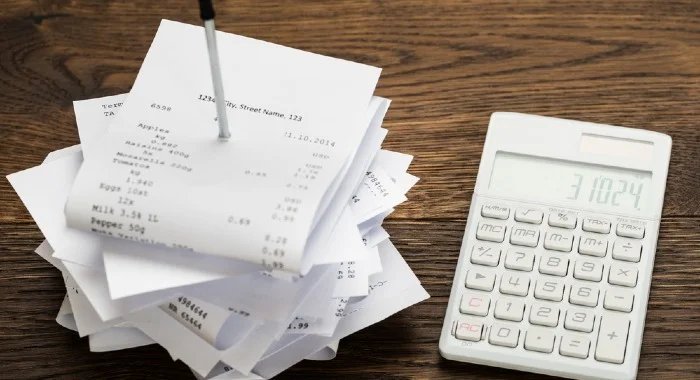
To claim your allowable expenses, you need to enter them into your tax return to reduce your tax bill. For example, if you need to pay £25,000 in tax, but you have £10,000 in allowable expenses, you only need to pay £15,000 on your tax bill at the end of the year.
Generally speaking, you don’t have to send the HMCR every receipt to claim these expenses every year. But you need to keep them in your records as proof should they ask for it, or audit your company.
How to keep a record of my limited company business expenses
To account for your expenses properly, you need to keep accurate records of everything. Bear in mind that you’re legally bound to keep these records for at least six years.
The best way to keep track of your expenses is through online accounting software. They’ll allow you to scan your receipts, upload all your expenses and will automatically track what you’ve been spending.
When it comes to picking the best accounting software, we’ve got you covered with in-depth reviews of all the options out there. Why not check out some of our favourites such as:
- FreeAgent, which has an incredibly intuitive platform is easy for beginners to use
- Quickbooks, which is incredibly cost-effective for both limited companies and sole traders.
- FreshBooks, which has been designed specifically for small businesses
- Zoho Books, which offers a completely free plan for businesses with revenuies below £35k per year
- Sage 50Cloud, which offers some of the best customisation options on the market.
- Xero, which is perfect for medium and rapidly growing businesses.
If you don’t have accounting software, the best way to track them will be to build yourself a spreadsheet and keep all receipts in a secure location. It’s going to be hours of manual work though, so we’d recommend taking a look at the software.
Top-Rated Accounting Software:
| Accounting Software | Cheapest Package | Ease Of Use | Our Rating | Review | Official Site |
|---|---|---|---|---|---|
 | £19/mo | Excellent | 9.4 | Read Review | Visit Website |
 | FREE | Outstanding | 9.3 | Read Review | Visit Website |
 | £12/mo | Excellent | 9.3 | Read Review | Visit Website |
Looking for help on your accounts?
Allowable expenses are a great thing for limited companies. But with so many categories and criteria to hit, it’s a hard one to get your head around when working out how much tax you should pay.
Accounting software is amazing for keeping an eye on your finances, but they can’t give you guidance on where you can claim.
That’s where an accountant can come in to help save you time, effort, and stress. And to help make sure that you hire the right one for your business, we’ve put this guide together for the top 5 questions you should be asking before you hire an accountant.
Not sure how much you should be paying an accountant? Take a look at the average accountancy costs for a limited company here.
